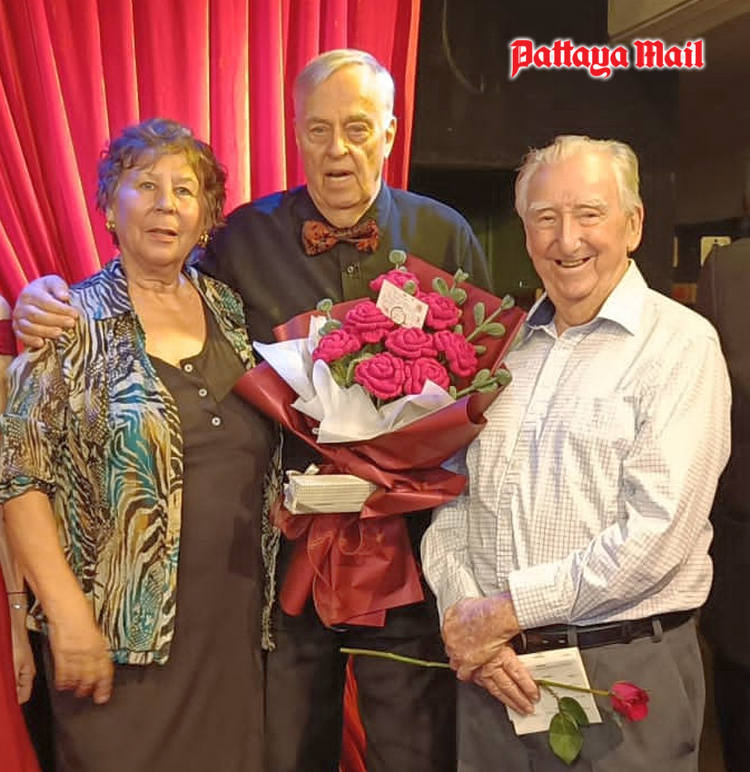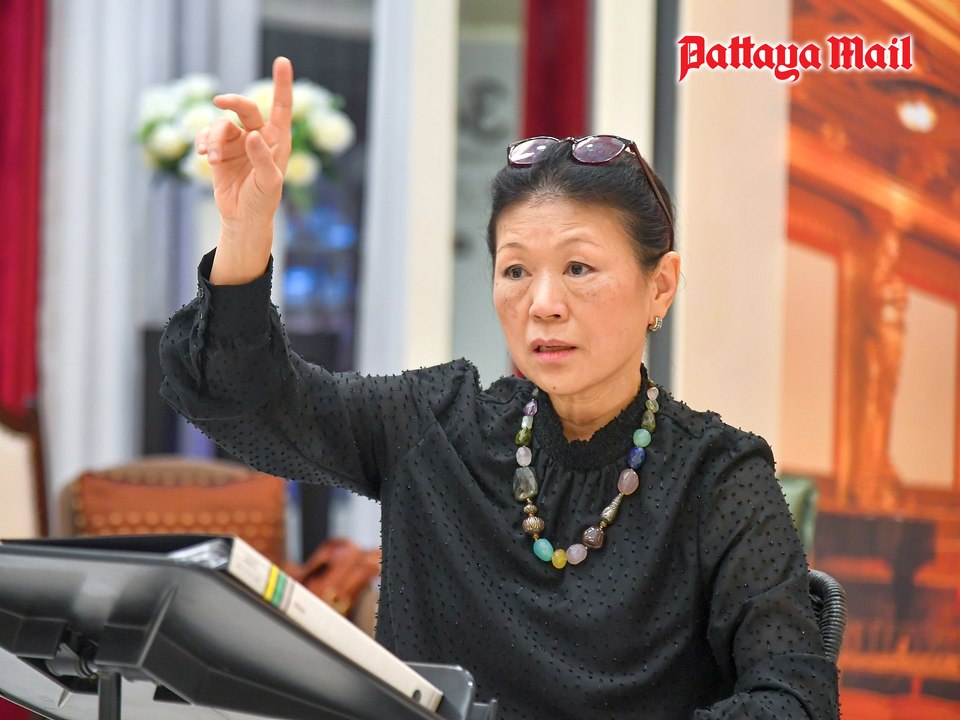
It seems amazing that twenty years have passed since the first concerts at Ben’s Theater, when singers Monika Petra, Barry Pethig and Roger Farman appeared at the informal shows. But as they say, “Time flies when you’re having fun.” It’s an old expression too. In 1609, Shakespeare used a similar one in “…the swiftest hours, as they flew” in his lengthy poem The Lover’s Complaint. The original version of the saying probably comes from the Roman poet Virgil who in one of his books wrote fugit inreparabile tempus which these days is usually abbreviated – somewhat incorrectly – to tempus fugit. Anyway, there certainly has been fun at Ben’s Theater over the years, especially since the arrival of classical music in the programmes about ten years ago.
 The 20th Anniversary was celebrated recently with a splendid concert given by the Heavenly Voice Singers, a group of talented students currently studying Classical Vocal Performance under the studio instruction of Prof. Nancy Tsui-Ping Wei at the College of Music, Mahidol University. Nancy is a Taiwanese-born American who has been on the Classical Voice faculty at the College of Music since 1995. Teaching and nurturing young vocal talents is her focus and passion and her talented students have performed in Europe, USA, Austria and Japan. As a child, Nancy received many awards in singing competitions in Taiwan. She later emigrated to the USA where she earned her Bachelor and Master degrees. Nancy has been on judging committees for several international vocal and chorus competitions.
The 20th Anniversary was celebrated recently with a splendid concert given by the Heavenly Voice Singers, a group of talented students currently studying Classical Vocal Performance under the studio instruction of Prof. Nancy Tsui-Ping Wei at the College of Music, Mahidol University. Nancy is a Taiwanese-born American who has been on the Classical Voice faculty at the College of Music since 1995. Teaching and nurturing young vocal talents is her focus and passion and her talented students have performed in Europe, USA, Austria and Japan. As a child, Nancy received many awards in singing competitions in Taiwan. She later emigrated to the USA where she earned her Bachelor and Master degrees. Nancy has been on judging committees for several international vocal and chorus competitions.
The singers at Ben’s Theater were Pimmada Ko-amornsup, Alisara Arial and Pichamon Mookmaneekun (sopranos), Jatupol Phintip (tenor) and Jatuphol Nuanjan (bass-baritone). They were accompanied as usual by pianist Anant Changwaiwit. The same singers had appeared at Ben’s Theater only five weeks previously, but they presented a completely different programme with plenty of musical contrast and every item sung from memory.
The concert opened with a delightful and appropriately restrained performance of the Dowland song Come Again, Sweet Love doth Now Invite, a bitter-sweet song typical of Dowland’s melancholy style. The song originally appeared in his First Booke of Songes, of 1597. It was sung by Pimmada, Pichamon and Alisara whose voices blended perfectly and who sang with excellent intonation and style. Pimmada sang the aria Bester Jüngling (The best young man) from Mozart’s 1786 comic opera Der Schauspieldirektor (The Impresario) which was followed by a splendid performance of the duet Bei einem Tee à deux from Franz Lehár’s romantic 1912 opera Das Land des Lächelns (The Land of Smiles). Sung by Alisara and Jatupol it was one of the highlights of the evening with some excellent ensemble work. I was also impressed by Jatupol’s warm tenor tone that he has developed. The performance was aided by an excellent piano accompaniment from Anant with some telling moments of rubato. I also enjoyed Alisara and Jatupol’s performance of the Johann Strauss song Dieser Anstand, so manierlich, from Die Fledermaus. They provided a dramatic performance with some fine ensemble singing which was well-received by the audience.
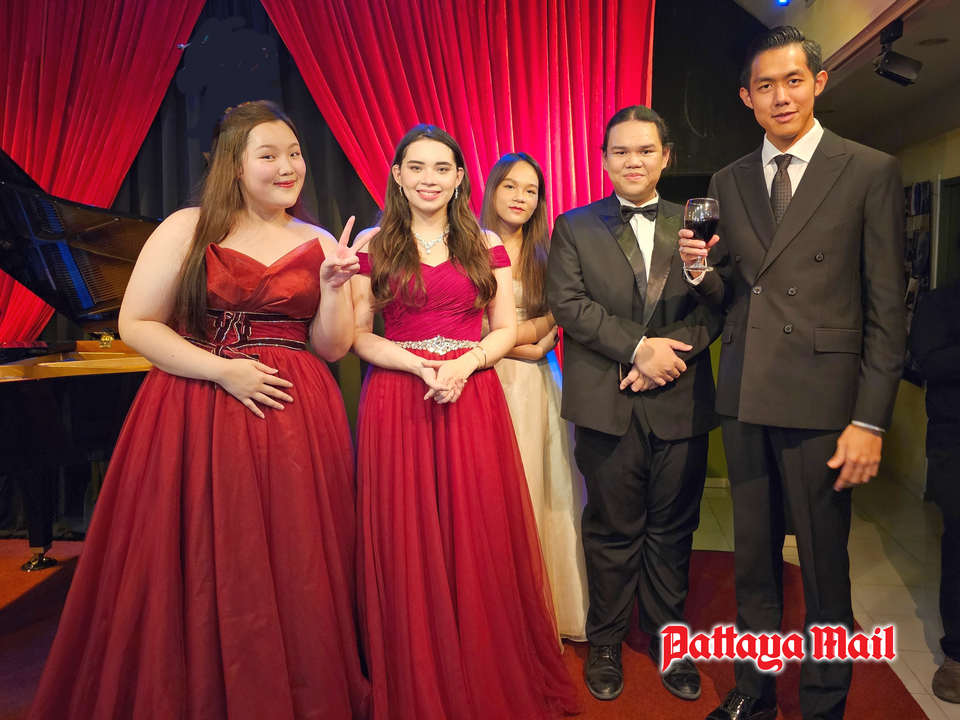
Pimmada and Pichamon returned to give another musical treat: the delightful song entitled Der Engel (The Angel), from a collection of twelve two-part songs with Russian lyrics by the Russian composer and pianist Anton Rubinstein (not to be confused with the Polish-American pianist Arthur Rubinstein). They sang the song perfectly, with lovely vocal blending and really captured the peaceful, lyrical quality of the music. I also enjoyed Alisara’s commendable performance of the lively Je Veux Vivre from Gounod’s opera Roméo et Juliette. Also known as Juliet’s Waltz, it’s a well-known and quite technically-demanding piece. Alisara was joined by Pichamon and Jatupol for a confident and enjoyable performance of So muss allein ich bleiben from Die Fledermaus) by Johann Strauss. It was performed with joyful exuberance; excellent intonation and a touch of drama which brought the first half of the concert to a triumphant close.
All the singers have performed before at Ben’s Theater and it has been fascinating to see how under the guidance of Prof. Nancy Tsui-Ping Wei, they have developed their musical skills, technique, drama skills and stage presence. Pimmada is the youngest of the singers, born in 2005. She started learning music at the age of seven and recently won 1st prize at the Princess Galvani Vadhana Institute of Music Voice Competition. Alisara was born in 2003 in Washington, started viola lessons at the age of nine and at fifteen, began taking voice lessons. In 2023 she received the Espoir Prize at the Osaka International Music Competition in Japan. Pichamon was born in Bangkok in 2002 and began singing lessons at an early age. She has won many prizes in competitions both in Thailand and abroad.
Confusingly, the two male singers share a similar first name but with different Romanised spelling. Jatupol Phintip (tenor) hails from Rayong and his first instrument was the saxophone before he developed an interest in singing. In July 2019, he was a winner at the Excellence International Music Competition in Taiwan and won First Prize in the Final Round. Jatuphol Nuanjan (bass-baritone) also began his musical studies as an instrumental player but also had a passion for singing. In 2021, he was a finalist at the Osaka International Music Competition and won a major prize at the Bangkok International Performing Arts Vocal Competition. Jutaphol told me that everyone had put in a great deal of hard work during the previous weeks, with much practising and rehearsal to present all the new material for the programme.
It seemed to me that most of the musical highlights were in the second half of the concert, which included the lovely Schubert duet Licht und Liebe (Light and love). Written in 1810 and originally scored for soprano and tenor, Alisara and Pimmada gave a compelling performance with splendid vocal blending, spot-on intonation and a perfect ending. Jatuphol (bass-baritone) presented a well-dramatized performance of the once popular song On the road to Mandalay, which sold over a million copies when the sheet music was first published in 1907.
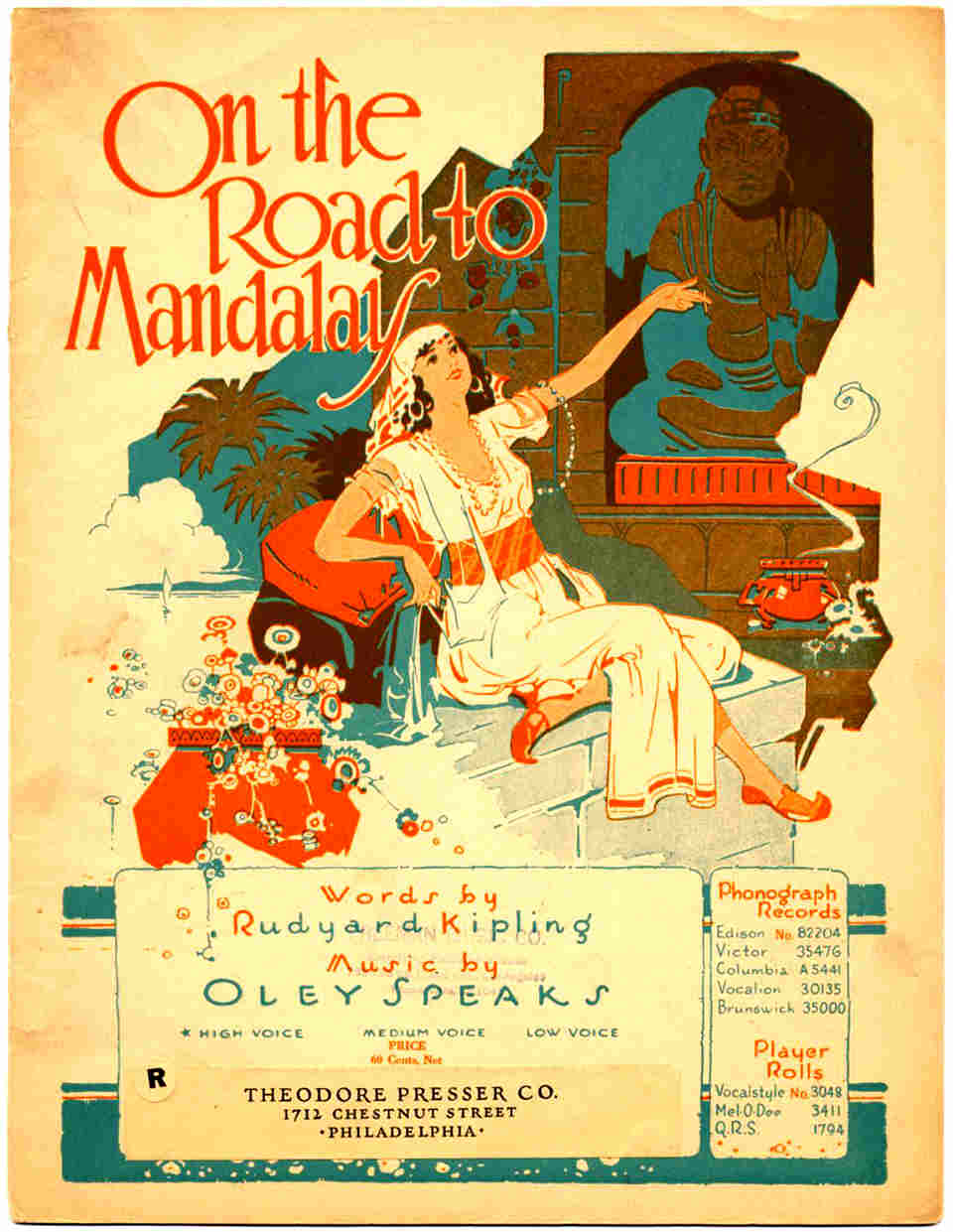
Composed by the curiously-named American songwriter Oley Speaks, it’s a setting of words from a poem by Rudyard Kipling. The song brought back memories for me, because my father often performed it at his concerts in true gung-ho fashion in his stentorian baritone voice. Jatuphol really caught the right style of the song and gave an assured performance. Pimmada, the youngest member of the group then sang Schubert’s well-known Ave Maria. Composed in 1825, it has always been one of the composer’s most popular pieces and Pimmada gave a lovely performance which revealed her pure and well-controlled tone quality.
Throughout the concert, the singers were given immense musical support by the ever-reliable Anant Changwaiwit who is a virtuoso pianist in his own right and in great demand in Thailand and abroad. Anant has played the Chopin Piano Concerto No. 1 and the Prokofiev Piano Concerto No.3 with the Thailand Philharmonic Orchestra and the Tchaikovsky Piano Concerto No.1 with the North Czech Philharmonic Orchestra. But he is also highly skilled at providing sensitive and thoughtful accompaniments – a task that requires a different set of musical skills. His playing through the evening was exemplary: technically faultless but always with an awareness of the vocal parts and an understanding of the music. Over the years, I have heard countless pianists, ranging from beginners to child prodigies and top professionals. Not all of them have the hard-to-define ability which allows the music to speak. But I think Anant has it.
But then came a surprise: a short and delightful choral piece entitled I Love My Love written in 1916 by the English composer Gustav Holst; he of The Planets fame. All five singers joined together for a sensitive performance of this ever-so-English piece and remarkably, they sang it entirely from memory. With perfect vocal blending and balance it was yet another musical highlight of the evening. Pichamon and Alisara returned to the stage for the exquisite Dirait-on (So they say) by the eighty-year-old American composer Morten Laudrisen. It is a lovely plaintive song and was given a telling and thoughtful performance. I felt that Pichamon was probably at her best in this and Alisara’s voice blended splendidly. Alisara delighted the audience with Franz Lehár’s well-known Meine Lippen, sie küssen so heiß which is perhaps the best-known song in the opera. It was a dramatic presentation and I noted how in recent years, Alisara’s stage presence and audience contact has become much more confident.
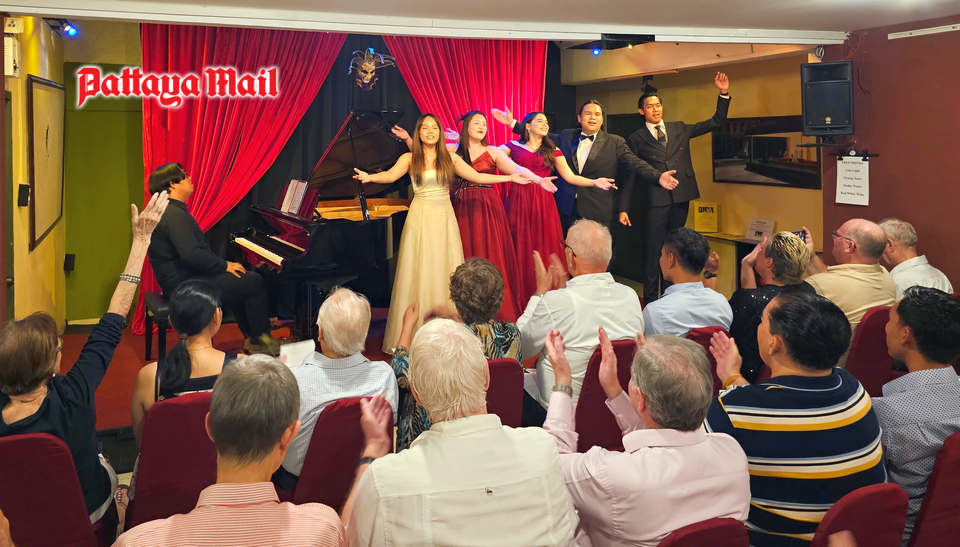
The concert ended with the lively polka-like chorus Im Feuerstrom der Reben from Johann Strauss’s opera Die Fledermaus. The song is also known as “The Champagne Chorus” and it was given a stunning and extrovert performance which enthralled the audience. The thrilling encore, the Drinking Song from Verdi’s “La Traviata” brought the evening to a triumphant conclusion. The Verdi chorus was truly a wonderful and appropriate way to celebrate twenty years of music. Judging by the enthusiastic applause, punctuated by howls and hoots of appreciation from the audience, they clearly thought so too.
